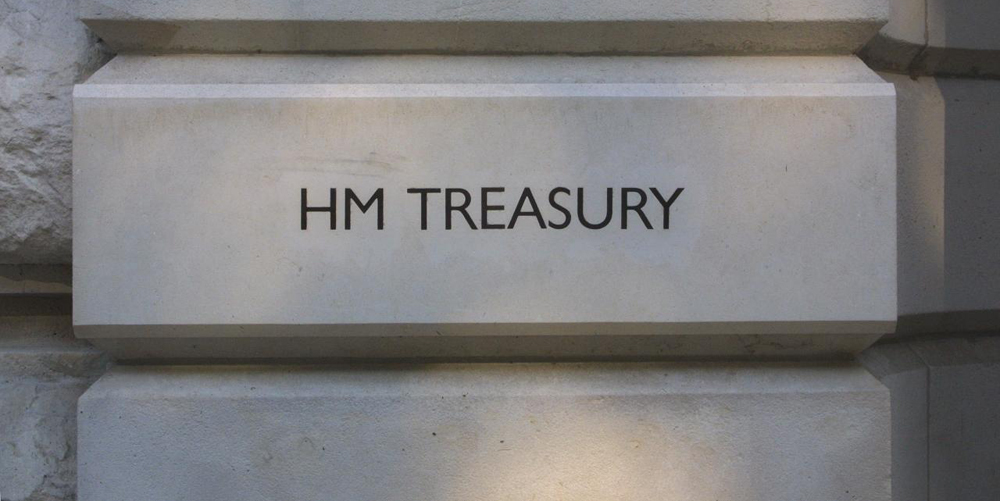Britain’s ebbing economy
The end of the belated and weak post-2008 recovery is exposing Britain’s economic weaknesses. If we are not to fall ever further behind, a new determined economic strategy is needed in place of failed Neo-liberal policies. Headline GDP only recovered to...
The end of the belated and weak post-2008 recovery is exposing Britain’s economic weaknesses. If we are not to fall ever further behind, a new determined economic strategy is needed in place of failed Neo-liberal policies.
Headline GDP only recovered to pre-crisis levels in late 2013. Growth was then desultory and has now slowed to 0.5 per cent in the first half of 2017 – the lowest among advanced economies. Consumer spending, which has so far largely driven recovery but has too often been paid for by extra borrowing, is now retreating. Earnings have fallen again in real terms (ten percent between 2008 and 2014). Manufacturing and construction first contracted sharply, then bumped along the bottom and are now shrinking again. Services – which now make up four-fifths of the productive economy – is the only sector producing substantively more than it was ten years ago.
Yet the population has grown by over three million since 2008; and per capita GDP has increased by barely 1.75 per cent over the decade. Equally, while the pound falling was inevitable and much needed, the value of Britain’s output, incomes and wealth in other currencies has necessarily also fallen. Britain’s GDP, despite the growth in domestic terms since, is in international purchasing power still worth over a tenth less than in 2008.
The benefits of growth and pay increases have been concentrated at the top, where they are least economically beneficial given Britain’s marked inequalities. The further you go down the scale of incomes, wealth or businesses, the more things have recovered a little but also continued to fall in real terms since 2008. This has been compounded by both cuts in public services and regressive tax giveaways, which if nothing else inflicted the greatest economic damage for the least economic benefit. Even if current forecasts are met, 65-70 per cent of pay-packets will continue to fall in real terms until at least 2022.
Essentially Britain is losing productive capabilities, businesses, products and markets faster than gaining new, or at least well paid ones, to replace them. The most commoditised and replicable have already been lost to lower cost economies. Intermediate ones are increasingly eaten by the growing number of those with a better combination of capabilities and costs. And, above all, ever more countries and businesses are moving ahead of Britain at the leading edge of new, high added-value economic activities, products and services.
Conversely, innovation and business development in Britain, particularly of new substantively productive activities (rather than say gambling, payday lending etc) have been declining since the 1960s. Yet, whatever the new capabilities, products and businesses Britain is indeed creating, other countries are doing more and, critically, these are still outweighed by those being lost.
One effect is Britain’s large (and increasing) unsustainable trade and balance of payments deficits. Services have indeed grown considerably as other sectors have stagnated. But not by enough to make up the shortfalls; which have only been alleviated by recurring currency depreciation to reduce the cost of British goods and services – aided and abetted by selling off or mortgaging the economic silverware.
Meanwhile not enough high added-value, secure well-paid jobs are being created to replace those being lost; which is made worse by accelerating globalisation, automation and technological advances. Now working up the skills chain, there are fewer jobs being created or at least fewer good jobs than the businesses and activities they displace.
Economic activities, businesses and jobs are broadly increasingly cleaving in two. Large and incumbent companies and wealth are seeing their returns, worth and market strength forge ahead. And the incomes and wealth of those at the top or with high value skills are rising well ahead of growth generally. But businesses further down the chain are being increasingly squeezed out or exposed to intensifying purely commodity driven competition. And for the increasing majority the pay, quality and security of work are deteriorating and under fairly unremitting downward pressure.
Other advanced economies are confronting similar challenges. But thanks to its interrelated structural weaknesses and recurring policy failures Britain is already weakened and particularly exposed.
Britain has been under-investing for decades. Already low, business investment fell sharply after the financial crisis, then recovered only grudgingly and is now falling again. Equally, already parlous public investment in all the key drivers of economic development from infrastructure to investment in people have been compounded by public spending cuts in the name of austerity and tax cuts for companies and the well-off.
Far too little business investment goes into substantively productive activities. Instead, profit growth in Britain is increasingly driven by rentier or financial/lending activities and greater short-term exploitation of markets, workers or assets. Equally, too little public spending goes into investment or contributes enough economically; often compounded by false parsimony, piecemeal erratic polices and poor execution.
This reflects deeper imbalance between substantively productive activities and property, lending and rentier activities. Britain’s national wealth is 62 per cent property, far higher than most advanced economies, and depends on values driven ever upward by self-inflicted supply shortages. Ever more expensive housing and property add little in productive terms but soak up ever more of incomes and investment desperately needed elsewhere.
Yet, suborned by ideological and vested interests, the tax (and institutional) system then compounds these problems. It penalises productive activities and the employment of people in Britain, while encouraging businesses to move anything they can offshore and relentlessly bear down on workers. Conversely, it favours wealth over work, incumbents over innovation, big business and financial services over productive endeavour; while facilitating the economy and tax revenues being cored out by legitimated avoidance and offshore finance.
Britain’s workforce is then under equipped and poorly skilled. Britain spends significantly less on R&D, training and business development than its competitors. A far higher proportion of Britain’s workers are unskilled and semi-skilled than in other leading economies. All aspects of vocational education, training and skills development are woeful. There is then poor alignment between the skills on offer and those needed; with recurring skills shortages and bottlenecks persisting for decades.
Productivity is now falling in absolute terms while an increasing number of countries are forging ahead. The average German or American worker now produces over a third more value in the same time.
The final ingredient, under both Conservatives and Labour since 1979, has been repeated doses of Neo-liberal prescriptions. But the economics is profoundly wrong, putting far too much faith in markets; while assuming innovation and business development will spring up unbidden yet government and the public sector are just burdensome encumbrances.
Market gravity is also ebbing away from Britain given its already diminishing capabilities, under investment, structural imbalances and poorly equipped workforce yet high labour costs (and labour taxes). Repeated tax cuts for companies and the well-off have failed to deliver the promised resurgence in investment, growth and new business. Rather Neo-liberal policies have abetted coring out the economy, compounded its imbalances and fuelled pernicious inequalities. Yet the government insists more is the only medicine.
Here, while Brexit indisputably isn’t the cause of Britain’s economic woes, its uncertainty really isn’t helping. The danger is this now triggers Britain’s economic vulnerabilities coming home to roost more precipitately and immediately. Conversely, it is against best addressing Britain’s economic weaknesses Brexit needs to be seen. But the risk here is leaving the EU distracts from while being blamed for problems which in reality run far deeper and continue to need addressing whether in or out.
Only a determined national effort and new economic strategy will now reverse otherwise inevitable economic decline. The cornerstones are robust, thought-through and properly resourced industrial, innovation and investment strategies; tree-and-branch tax reform to square the circle between improved economic performance, raising enough revenue and greater equality; a new dimension of lifetime skills and training; and far reaching land and housing reform.
For Labour the political momentum, hard-headed economics and voters’ greatest concerns now pull in the same direction. The catch is securing Labour’s economic credibility against the deeply embedded Neo-liberal worldview and largely hostile media (while resisting its own simply tax and spend tendencies). Labour therefore needs to keep hammering that its policies first and foremost better, indeed best, meet the all too real economic challenges.



